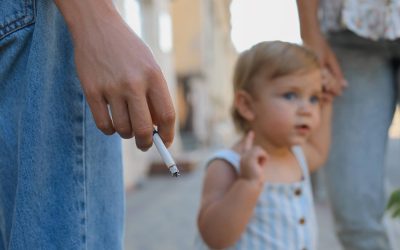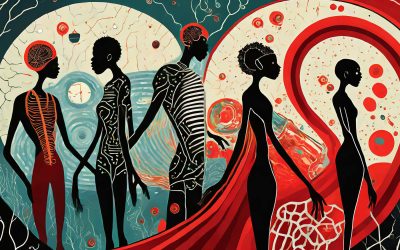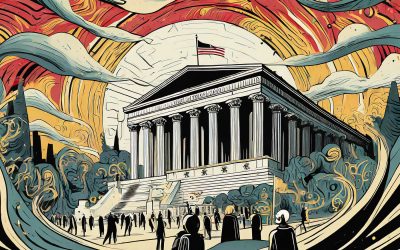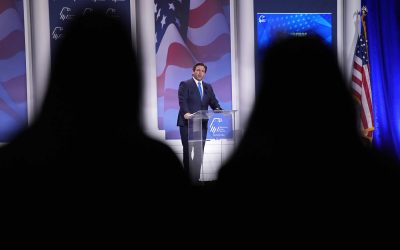Purple Hibiscus: A generation of African writers have followed in Chimamanda Ngozi Adichie’s footsteps
By Simon Lewis, Professor of English, College of Charleston Twenty years ago, in October 2003, 26-year-old Nigerian author Chimamanda Ngozi Adichie burst onto the North American publishing scene with her debut novel,“ Purple Hibiscus.” Since then, Adichie’s literary...
Study finds secondhand smoke could significantly contribute to higher lead levels found in youth
By Genny Carrillo, Associate Professor of Environmental and Occupational Health, Texas A&M University; Taehyun Roh, Assistant Professor of Epidemiology, Texas A&M University Secondhand smoke may be an important but overlooked source of chronic lead exposure...
Limits of religion: How “In God We Trust” laws tests in public schools are used to push Christian Nationalism
By Frank S. Ravitch, Professor of Law & Walter H. Stowers Chair of Law and Religion, Michigan State University When Louisiana passed a law in August 2023 requiring public schools to post “In God We Trust” in every classroom, from elementary school to college, the...
Morgue to medical school: Why cadavers of the poor and vulnerable can be dissected without consent
By Eli Shupe, Assistant Professor of Philosophy and Co-Director of Medical Humanities and Bioethics, University of Texas at Arlington Every year, first-year medical students approach their human cadavers with a mixture of awe and trepidation. They will come to know...
Immoral minority: Why SCOTUS puts First Amendment rights for Christians before equal protection for all
By Pauline Jones, Professor of Political Science, University of Michigan; and Andrew Murphy, Professor of Political Science, University of Michigan When the Supreme Court ruled in 303 Creative v. Elenis in 2023 that a businessperson could not be compelled to create...
If it bleeds, it leads: When network TV learned how to profit from the Kennedy assassination
By Michael J. Socolow, Professor of Communication and Journalism, University of Maine In journalism, bad news sells. “If it bleeds, it leads” is a famous industry catchphrase, which explains why violent crime, war and terrorism, and natural disasters are ubiquitous on...
The meaning of mindfulness: Starting 2024 with a yearning for inner peace in a distracted world
By Jeremy David Engels, Professor of Communication Arts and Sciences, Penn State The start of another year can feel magical to many of us. Even though the days remain short and dark, the flip of the calendar can make it seem new beginnings with new resolutions are...
Obstacles to learning: Why higher education can be elusive for immigrants and asylum-seekers
By Kerri Evans, Assistant Professor, University of Maryland, Baltimore County; Ishara Casellas Connors, Assistant Professor, Public Service and Administration, Texas A&M University; and Lisa Unangst, Assistant Professor, SUNY Empire State College Pursuing higher...
Finding relief: How a cure for epidemic of loneliness would make Americans less likely to abuse drugs
By Clay Marsh, Chancellor and Executive Dean for Health Sciences, West Virginia University A national health advisory issued by U.S. Surgeon General Vivek Murthy on May 3, 2023, shed light on the urgent public health issues of loneliness and isolation. The report...
Hijacking wireless keys: Thieves go high-tech to steal today’s computerized cars
By Doug Jacobson, Professor of Electrical and Computer Engineering, Iowa State University These days, cars are computer centers on wheels. Today’s vehicles can contain over 100 computers and millions of lines of software code. These computers are all networked...
Decades of overbuilding: What comes next as traditional downtowns implode in many U.S. cities
By John Rennie Short, Professor Emeritus of Public Policy, University of Maryland, Baltimore County The hollowing out of U.S. cities’ office and commercial cores is a national trend with serious consequences for millions of Americans. As more people have stayed home...
From Scott Walker to Ron DeSantis: What drives “Imperial Governors” to seek being elected as President
By Raymond Scheppach, Professor of Public Policy, University of Virginia Many people believe governors make good presidents. In fact, a 2016 Gallup Poll found that almost 74% of people say that governing a state provides excellent or good preparation for someone to be...






















